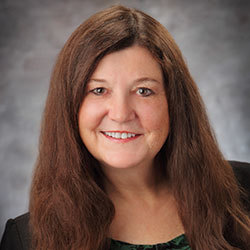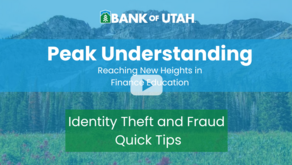Have you seen the classic movie The Wizard of Oz ?
One of my favorite scenes is when Dorothy and her friends return to the Wizard having accomplished the very dangerous task he had given them – to bring him the broomstick of the Witch of the West. The Wizard had promised that, in return, he would give each of them the one thing they had requested: a heart for the Tin Man, a brain for the Scarecrow, courage for the Lion and a trip home for Dorothy. Instead of fulfilling his promise, though, the great and powerful Oz yells at them in his menacing, booming voice, and tells them to come back tomorrow.
Distracted by the shouting and commotion, the friends don’t notice Dorothy’s little dog Toto investigating the Wizard’s curtain. Toto pulls it aside to unveil an ordinary man controlling the fire, smoke and voice of the Wizard, a man who was the complete opposite of the large, loud, emerald green Oz that was being projected. This man had been manipulating them the whole time, and they weren’t even aware of his presence.
The Wizard was a scammer.
Posing as someone else, the fraud convinced Dorothy and her friends to do something dangerous to give him what he wanted. They risked everything based on an agreement with a man who was full of smoke, mirrors and empty promises. The results could have been tragic, but in the end Dorothy discovered she already had the tools she needed to return home safely – the ruby slippers – and was able to get instructions for how to use them from Glinda, the Good Witch.
Pulling Back the Curtain on Scammers
Just like Dorothy’s adventure to Oz, today’s technology allows us to instantly access, and even do business with, parts of the world we might never in our lifetimes get to visit. In a matter of minutes, I can pay bills online, transfer money to a friend, shop for groceries or some new fall sweaters handcrafted in Colorado. I can keep up with friends on social media, “like” my favorite author’s newest release, post photos of my latest DIY project, and book a beach house for next summer's vacation.
The internet can open us up to all sorts of possibilities, but it can also open us up to scams. Like the ordinary person pretending to be the Wizard, not everyone online is who they appear to be. We have to search for and reveal the scammers, just like Toto did. We also have to have the knowledge and the tools to ensure our safety, just like Dorothy had.
With October being National Cyber Security Month, and with Bank of Utah participating in the American Bankers Association campaign, Banks Never Ask That, I wanted to share a few tips for staying safe in the cyber world and for spotting fraud.
4 Tips for Staying Safe Online
1. Be suspicious of anyone who contacts you by phone or email claiming to need access to your computer for ANY reason.
A customer recently took a phone call from someone claiming to be from Google. The “Google representative” said they were calling because the customer needed to buy a new phone with “anti-hacking software” and proceeded to give instructions on how to add the phone to the customer’s shopping cart. When the customer voiced skepticism, the caller shifted tactics and said the customer’s credit card was being used in Mexico that exact minute, and if they didn’t give them their account number right away, they wouldn’t be able to stop the fraud in time. The customer wisely asked, “If you can see that my card is being used, why don’t you give me the number?” The fraudster ended the call.
2. Never click on links that automatically pop up on your computer or that appear in emails warning you that your computer is at risk.
The fraudulent link pretends to come from a trusted company or “name brand” virus protection product. These messages are designed to be alarming, in the hopes you will click on them out of fear. Clicking on the link may give someone else immediate access to your computer or load spyware on your computer.
3. Check the privacy settings for social media platforms that you use regularly.
When updates occur to apps, confirm your settings are still set to a privacy level you are comfortable with, not what the company wants you to use.
4. And last, but not least, never give out account numbers, passwords, PIN numbers or your Social Security number over the phone, even to callers who claim to be from the IRS, federal government or your bank.
These institutions will NEVER call to ask for that information. Nor will they tell you that you need to buy gift cards to pay off your debt. That actually happened to a customer, who said the “IRS” called to say they were sending law enforcement officers to arrest them for back taxes. The “IRS representative” told the customer that, to avoid jail, the customer must take all the money from their savings account, purchase gift cards, and give the caller the activation codes.
You can find out more about what banks never ask by visiting ABA’s website, banksneveraskthat.com. It’s a fun resource that uses humor while educating you about the persistent and ever-rising threat of phishing schemes – emails, texts or calls that seem to be from companies or people you know, but are actually from scammers trying to get your personal information. There’s even a quiz, where you can try to outsmart the scammer.
Talk to Us About Fraud
Your local Bank of Utah branch is also an excellent resource on recognizing and dealing with scams. Stop in and meet your local representative. We would be happy to answer any questions you have about fraud, show you ways to reduce risk, and talk about the different tools Bank of Utah customers can use to protect themselves against fraud.
Together, we can make sure we know “who’s behind the curtain.”
 Karen Owens is branch manager for Bank of Utah’s Layton branch. She has worked for the Bank since 2017. Karen has served as a board member for Habitat for Humanity of Weber and Davis Counties, and she participated in Project Homeless Connect. She enjoys reading, hanging out with family and friends, and spending time with her grandkids. Karen says she’s proud to work for a bank that invests in the community and encourages its employees to do the same.
Karen Owens is branch manager for Bank of Utah’s Layton branch. She has worked for the Bank since 2017. Karen has served as a board member for Habitat for Humanity of Weber and Davis Counties, and she participated in Project Homeless Connect. She enjoys reading, hanging out with family and friends, and spending time with her grandkids. Karen says she’s proud to work for a bank that invests in the community and encourages its employees to do the same.




